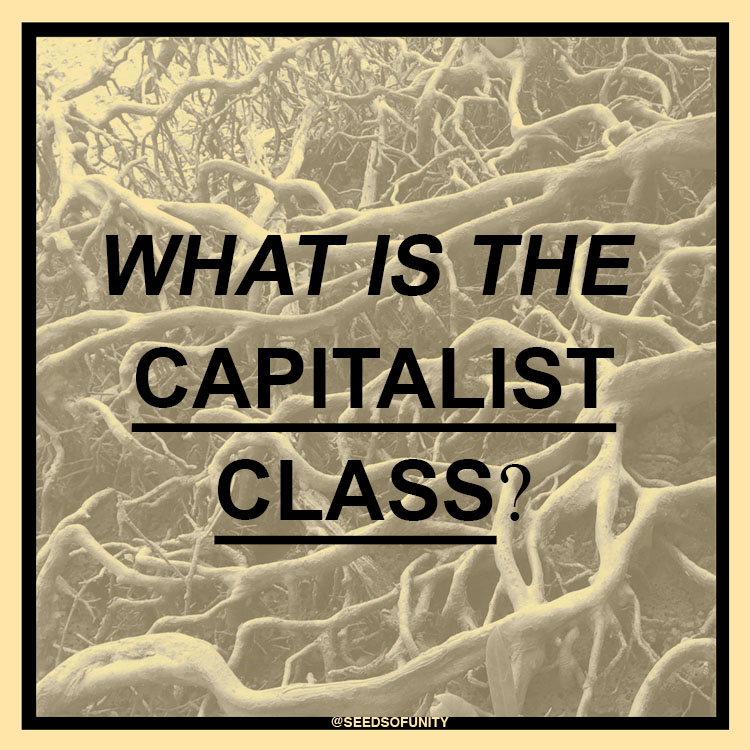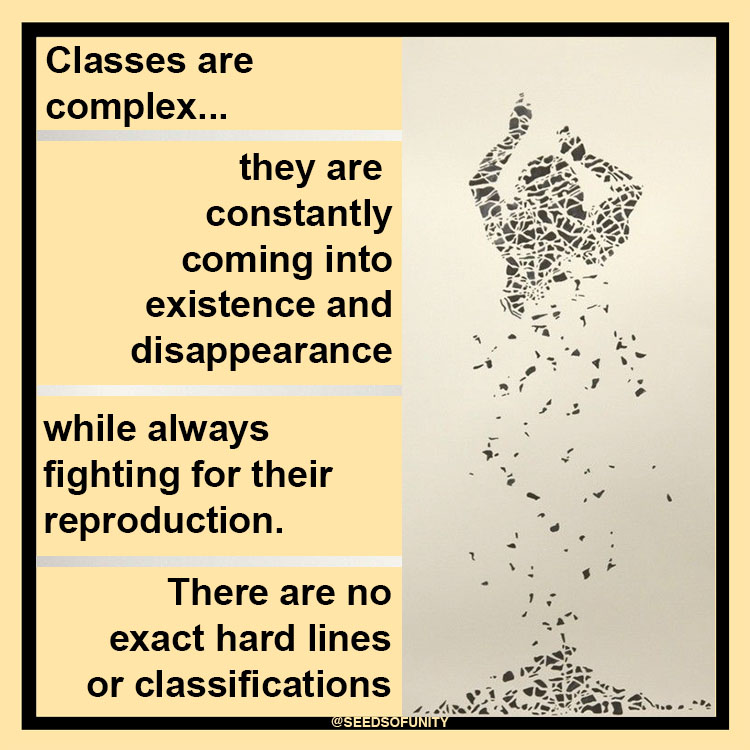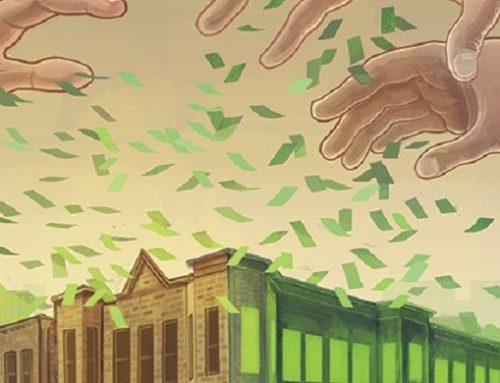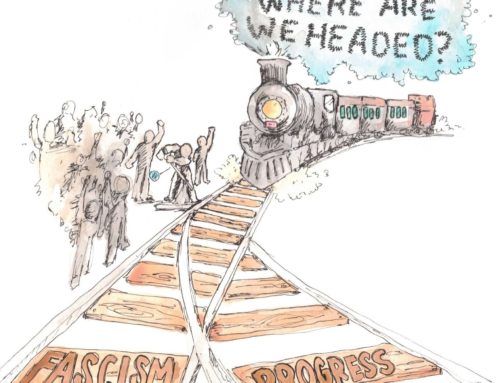As we continue our Roots series via Seed of Unity (SoU), we thought it useful to share a bit of our process. One Struggle initiated SoU as a project to build unity around concepts for understanding the world around us so that we can participate in its transformation. How can we change something if we don’t agree upon what’s in front of us, right?
Producing this content has been a process of building unity internally for us as an organization, then taking this unity out into the world to convince others and to see our mistakes (struggle – unity – struggle). It’s also pushed us to realize our current limitations of understanding capitalism and imperialism. Different from a revolutionary organization, as an intermediate level group, we realize we may not reach full unity on some of these concepts. There may be differences among us.
Rather than pretend like we have all the answers, we are posting this as a short attachment to our recent “Roots” post, “What is the Capitalist Class?” Obviously a 10-slide post on Instagram cannot capture the complexity of the question posed. So what follows is a brief and limited starting point for digging deeper. We may not have the answers to all these questions, but we know they are important starting points for collective development.
* To understand classes and their relationships among each other, we must understand the historical development of the mode of production of that class divided society (capitalism, feudalism, etc). This historical development will have general commonalities, but we also have to understand the specificities of how this development takes place in distinct social formations or societies. For example, the way capitalism developed in the US is different than England, different than Haiti, etc. Class struggles in all these social formations shape the concrete formation of classes and their relations.
* To understand the capitalist class, we must try to appropriate what capital is and how it’s produced.
* The capitalist class most often forms a unified class bloc against the masses, but within the bloc are class fractions competing for their own interests. These interests are based on their specific form(s) of capital accumulation. So, to understand the capitalist class requires understanding all the different forms of capital accumulation – industrial, banking, etc. Generally, there is one fraction within the capitalist bloc that is dominant or hegemonic. In the past it was the industrial capitalists. More recently, banking capitalists have been the hegemonic force.
* Since the capitalist class does have varying and competing interests, we must understand the contradictions among them. These contradictions are normally the points of contention for which they lean on us, the masses, especially the middle class, to support alternatives that never actually represent our interests. Understanding these contradictions allows for the development of truly independent and autonomous alternatives, as well as the ability to take advantage of their internal conflicts to move closer towards our objectives. Understanding the historical constitution of classes, or fractions of classes, again requires that we understand their forms of accumulation, but also their political and ideological tendencies.
* Capitalism is facing a structural crisis internationally, thanks to the dominance and toxicity of banking capital. Fascism is rising and trying to consolidate to address this economic crisis, while other fractions of the capitalist class resist their attempt at dominance. But no fraction holds any real alternatives. By necessity and class interest, they will continue to put profits over the interests of workers, students, families, neighborhoods, our health, and the planet.
Our objective for Seeds of Unity and as One Struggle is to participate in the construction of an alternative that actually represents the people dominated and exploited by capitalism/imperialism. We want to build organizations and a movement of people that can democratically, collectively take part in shaping a new formation of society. But first, we have to understand the enemy.
One Struggle is not capable of doing this work on its own, nor is any one individual or organization. It has to be done collectively… meaning your participation is necessary.
We’re asking you to struggle with us. What concepts here do you agree with or disagree with? What remains unclear, unexplored, or unrelatable? It’s these moments of interrogation, dissonance, and disagreement that create the conditions for a truly progressive alternative – we want you to build it with us by finding unity through struggle!
Please follow @SeedsofUnity on IG, and get in touch. Let’s figure out our agreements, our differences, and what we might be able to accomplish together.
onestruggle.southflorida@gmail.com
onestruggle.fiu@gmail.com
FB – @OneStruggle
IG – @SeedsofUnity // @OneStruggle.FIU
Twitter – @OneStruggleSF







